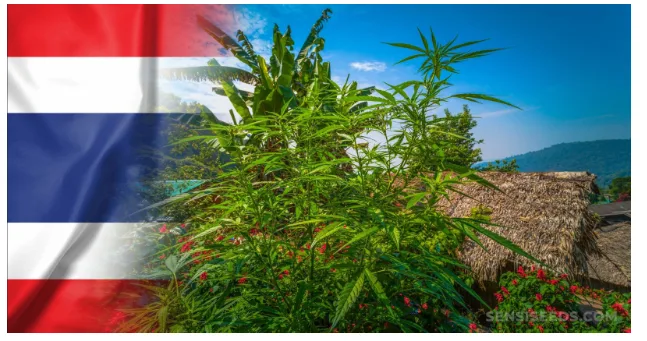Thailand’s Cannabis Reversal Reveals Fault Lines in Risky Reform Strategy
In 2022, Thailand shocked much of Asia when it became the first country in the region to decriminalize cannabis. The shift set off a fast frenzy: Thousands of dispensaries sprang up, projections emerged of a billion-dollar market, and officials pitched the reform as a win for health, agriculture and tourism alike. But three years later, that experiment is all but defunct.
In June 2025, the Thai administration reversed its own decision. The U-turn followed increasing public unease, as well as international pressure, and a growing body of evidence revealing the unintended consequences of the policy.
By the close of 2022, cannabis was ubiquitous — not only sold in clinics, but also in convenience stores, market stands, and beachside cafés. What had been a well-reasoned medical rollout instantly became a quasi-recreational free-for-all. The data from the Centre for Addiction Studies is much more grim, showing a tenfold jump in pot use by 18–19-year-olds between 2019 and 2022, going from 0.9% up to 9.7%. Over that time, hospitalizations associated with cannabis also doubled.
In 2023, the Ministry of Public Health said that cannabis-related disorders were costing the country over 15 billion baht — the equivalent of almost $490 million today. That number, combined with tales of underage access and cannabis-related accidents, prompted officials to reconsider the policy structure. While speaking at a news conference, Health Minister Somsak Thepsutin finally said Thailand would return to a medical-only model as addiction rates soared and enforcement remained minimal.
The economic fallout has been immediate. By the middle of 2025, most of the country’s 11,000 or so dispensaries had shut down. Some industry experts believe up to 70% of outlets were unable to meet the new licensing regime. And rural growers and small businesses — originally presented as the chief beneficiaries of the policy — have taken an outsized blow.
Tourism, which is another cornerstone of the Thai economy, has also taken a hit. The country drew over 35 million visitors in 2024. But in the first half of 2025, arrivals dropped 5 percent, driven by a near-30 percent fall-off in Chinese tourism, traditionally one of the largest revenue sources. The decline is in part because of global factors and regional instability, analysts say, but many in the industry are blaming sudden and confusing cannabis policy changes that have diminished Thailand’s reputation as a stable and open destination.
Central to this policy theater is Anutin Charnvirakul, the leader of the Bhumjaithai Party who, as health minister, was the highest-ranking proponent of cannabis reform. In 2022, his ministry went so far as to send a million marijuana plants to homes across the nation — a stunt that grabbed headlines but raised serious concerns among health experts.
Once feted as a bold reformer, Anutin’s profile took a hit. His earlier stint during the COVID-19 crisis was fraught with tension between him and doctors, as well as costly procurement choices. More recently, his support for casino legalization has only added to concerns over his policy instincts. The collapse of the cannabis reform has only deepened those doubts.
Ultimately, Thailand’s cannabis story may be a cautionary one — not about cannabis per se, but about the perils of making policy on the fly and without clear guardrails. The dash to liberalize, without adequate oversight and enforcement, put the country at risk. And for politicians such as Anutin, the fallout isn’t just political — it’s a stark reminder that reform without a safety net can quickly unravel.




